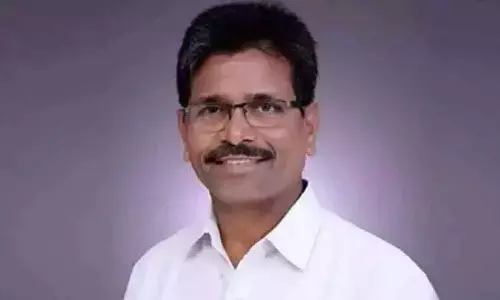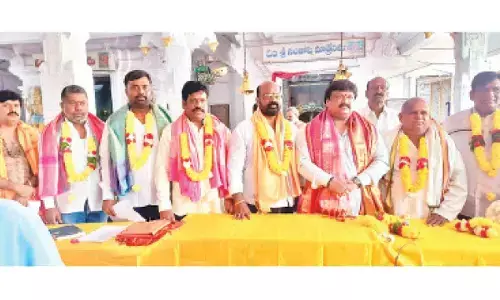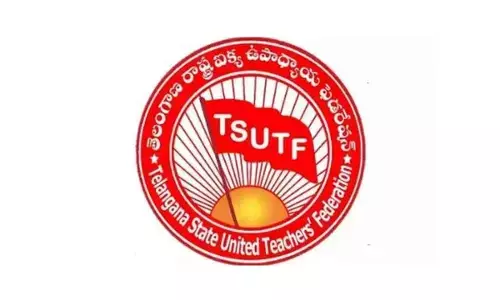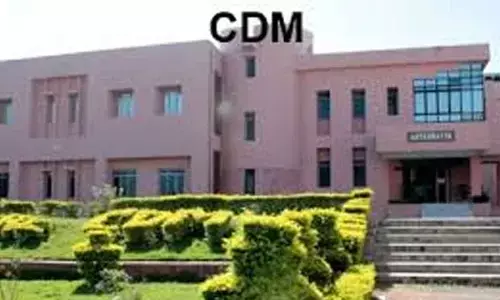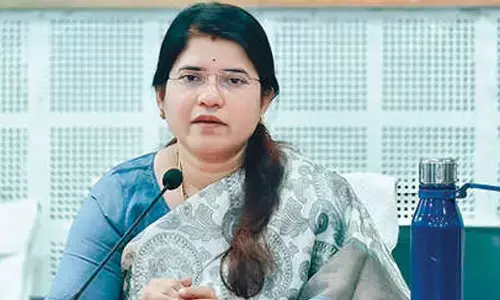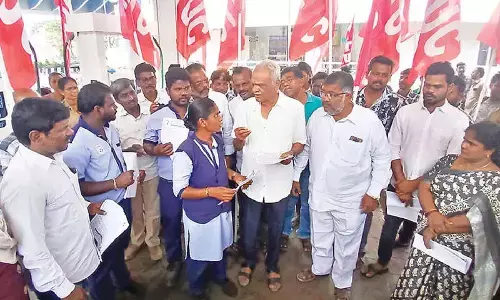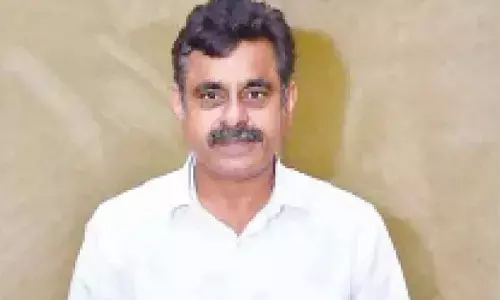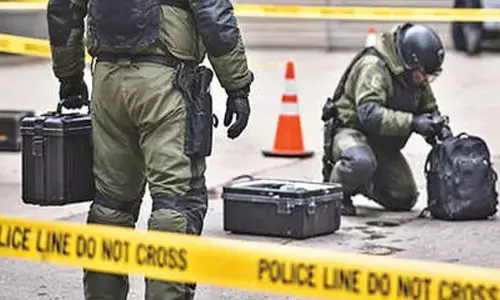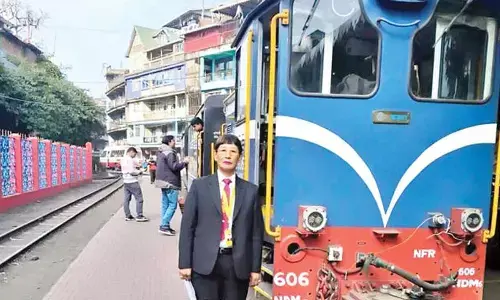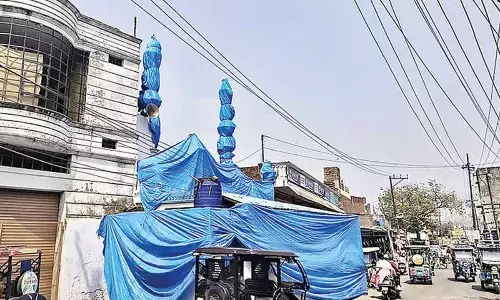A Case For Restraint

Sexual Assault Case: A Case For Restraint. The sexual assault case against Tehelka’s editor Tarun Tejpal has again swung into focus issues of jurisprudence that limit freedom of the press
The media cherish their independence and must recognise that independence is as essential for the judiciary to deliver justice as it is for the media. Media’s right to tell and the right of the public to know are not absolute
.jpg) The sexual assault case against Tehelka’s editor Tarun Tejpal has again swung into focus issues of jurisprudence that limit freedom of the press, as well as the frontiers of such freedom. The recent Delhi High Court gag order in the context of the Swatanter Kumaur case rattled the media. Consequently, the Supreme Court refused to frame guidelines across the board for reporting sub-judice matters but laid down a constitutional principle under which aggrieved parties can seek postponement of publication of court hearings. The Hindu said, “By emphasizing the right of an aggrieved person to seek postponement of media coverage of an ongoing case by approaching the appropriate writ court, there is a danger that gag orders may become commonplace.”
The sexual assault case against Tehelka’s editor Tarun Tejpal has again swung into focus issues of jurisprudence that limit freedom of the press, as well as the frontiers of such freedom. The recent Delhi High Court gag order in the context of the Swatanter Kumaur case rattled the media. Consequently, the Supreme Court refused to frame guidelines across the board for reporting sub-judice matters but laid down a constitutional principle under which aggrieved parties can seek postponement of publication of court hearings. The Hindu said, “By emphasizing the right of an aggrieved person to seek postponement of media coverage of an ongoing case by approaching the appropriate writ court, there is a danger that gag orders may become commonplace.”
Media’s disdain for the judicial process, reflected in the print and TV media’s dissection of the merits of cases a court is seized with, has complicated this discourse. Tejpal’s trial has hardly begun. Neither the prosecution nor the defence has opened their arguments. But the media have already done what they are good at: drag the issue into the arena of public opinion on the basis of the first news report. Human rights activists entered the scene by importing the right of the accused to be heard exclusively by the judiciary and the right of privacy of parties to a case.
As the SC indicates, “excessive prejudicial publicity leading to usurpation of functions of the court not only interferes with administration of justice … it also prejudices or interferes with a particular legal proceeding”. Subjecting the victim to excess and undue publicity in media by prejudging what that vital piece of evidence contains and simultaneously calling into question the character of the victim/complainant even before she faces grilling by the defence, even if indirectly, may well amount to being a real and substantial risk of prejudice.
Tejpal‘s big story with its salacious ingredients runs as follows: A junior colleague accused him of alleged rape during ThinkFest, a high-profile conference organized in Goa by Tejpal. The victim has claimed that Tejpal had sexually assaulted her twice on Nov 7 and 8. The Goa Police charged Tejpal under several sections of the Indian Penal Code.
The alleged sexual assault generated countrywide interest because the central character is a reputed journalist with the additional credential of having pioneered the sting journalism. The case has divided the ranks of the media; a section of the journalists went for Tejpal’s jugular, and another donned the gown of a defence counsel.
The ‘liberal’ press, outraged by ‘rightwing’ enemies of Tejpal pillorying a fellow journalist, laid its hands on some CCTV footage of the alleged assault and launched a defence campaign upstaging the ongoing judicial process. The CCTV footage is the prosecution’s crucial evidence to which only the family of the accused has a right, according to the court. Manu Joseph, a journalist, wrote a long defence of Tejpal, crudely illustrating the article with images of the lift episode in The Outlook of India Weekly.
Women and feminists are particularly angry over this media meddling. Brinda Grover, a lawyer and human rights activist who was one of three Indians on Time Magazine’s 100 Most Influential People list, wrote, ‘The CCTV footage has been shown to many carefully identified and selected persons in the media and influential and powerful persons, by family and close coterie of friends of Tarun Tejpal in defiance of an order of the court.’ The media’s prosecution and defence of the accused and this dubious use of evidence just before the start of the trial indicate an intention to influence the judicial process.
Without naming the Bharatiya Janata Party (BJP), Tejpal tried to liken his rape trial to a secular versus communal battle. In his statement to the court he said that the trial against him was akin to an attack on "Indian Pluralism’ by communal forces. I'm afraid what we are witnessing here is an early sign of the inherent fascism of the right wing that will target its detractors in the most sinister and underhand ways, using all the government machinery at its disposal," he said.
Filmmaker Anurag Kashyap defended Tejpal on his Facebook page: "I have seen the CCTV footage too and none of what the girl says about Tarun Tejpal is true." Tehelka's managing editor, Shoma Chaudhury added that it was presumptuous of the media to jump to conclusions by insinuating that it was rape only on the basis of leaked emails.” The Delhi Union of Journalists appealed to the media to curb its ‘over the top’ coverage of the story, avoid sensationalism and desist from conducting a media trial. But their pleas have fallen on tone-deaf ears.
Continuing apace with the meddling, Sagarika Ghose of CNN-IBN questioned whether the disgraced editor would get justice in a Congress-ruled state. Political commentator Swapan Dasgupta tweeted: "Is Tarun Tejpal suggesting that foisting yourself on an unwilling woman is a feature of 'dissent' and the fight against 'fascism'?" The list of self-appointed luminaries opining on the case is seemingly endless!!
The coup de grace was an appeal from Tejpal’s daughter to spare her family from public gaze and judgement. But while seeking their privacy, the family stole the privacy of the victim by circulating the CCTV footage. The court had allowed access to the CCTV tapes to the family on the express condition that they would remain confidential.
If the press is keen on self-regulation, sensitive issues that affect the lives of either the accused or the complainant provide an opportunity for exercising this restraint themselves. The media cherish their independence and must recognize that independence is as essential for the judiciary to deliver justice as it is for the media. Media’s right to tell and the right of the public to know are not absolute.
(The writer is a senior Indian journalist who now lives in the US. [email protected])


